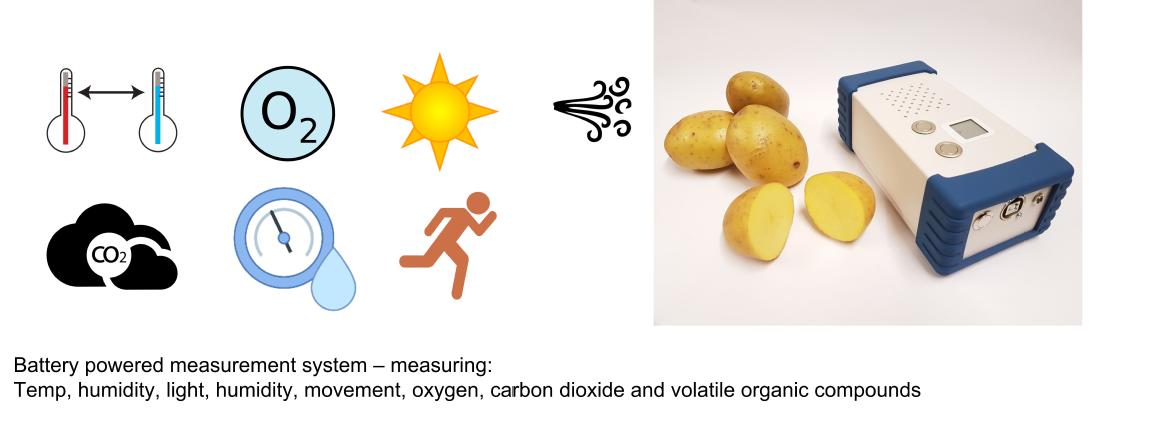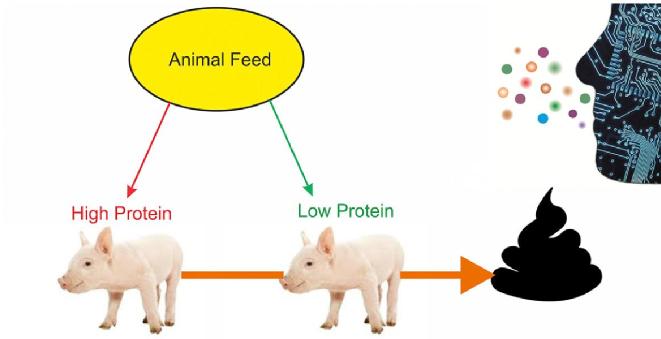Applications
A key research area of the BioMedical Sensors Laboratory is in agriculture. Like humans, animals and plants both generate odours that can be linked to disease and health and can be monitored using a wide range of lab based and portable sensing technologies. Two examples of these are given below, but the activities of the group are wider.
Potato Storage and Transport
A key research focus of our group is in developing technologies and processes that are able to monitor crops in store and in transit. The majority is working with industry to develop solutions for potatoes - both in storage and in monitoring in transit.
- Bacterial soft rot disease results in significant losses in UK potato stores
- Difficult to monitor in very large (1000 ton+ stores), where access to potatoes for visual inspection is difficult
- About 80,000 tonnes seed is exported out of the EU
- 30 per cent of seed potatoes (80,000 tonnes) grown in Scotland are exported out of the EU generating £35 million for the economy
- 2,000 tonnes of Scottish seed denied entry to importing countries since 2013
- Soft rots cited as the cause of rejection for 1500 tonnes every year.
- Main concern are rots that appear post inspection on arrival;
- Stocks that have been passed by official inspectors but which have then degraded rapidly causing a total loss.
- Latent infection is a challenge for exporters as disease may not have had time to manifest prior to shipping or by the time of the official inspection.
At present, there is no technology available for monitoring this disease in commercial stores and in transit, but if soft rot could be detected early, the farmer/store manager could make an informed decision of how best to manage the infected crop (usually by selling into the food or animal feed markets, or by changing the storage conditions). We believe that automated detection of soft rot could be achieved through modern gas analysis technology. Below is an example of a unit designed for this application.

Animal Health
A second key agricultural area for the Biomedical Sensors Laboratory is to use odour analysis technologies to monitor animal health. With animals, it isn't possible to ask the animal about how they feel or what symptoms they have. Therefore, there is a strong need to develop non-invasive tools and techniques to monitor animal health. As with humans, we are able to collect biological waste (such as stool and urine) to get an understanding of animal/gut health. We are working on a range of animals, including cows, sheep and pigs. An example is associated with pigs and dietary intervention, to understand how these changes modulate gut health. Here animals were fed with different food type (one high protein and another lower) and we investigated changes in odours from stool samples. Our system was able to measure the differences in samples with a high accuracy. This work was supported by DSM (Switzerland).

